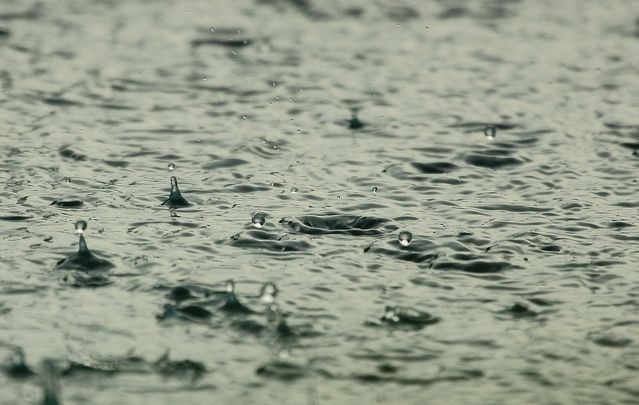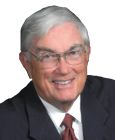Addiction
The Healing Rain
A beautiful and profound description of the healing process from addiction.
Posted September 28, 2018

James B. is a coauthor of my book The Craving Brain: Science, Spirituality, and the Road to Recovery. The following is a beautiful description of a profound moment in the healing process from his addiction:
It was a perfect setting for a spiritual pilgrimage. I was sitting on the side of a mountain in Colorado, 10,000 feet above sea level. Below was a pond and above me a bright blue sky with a few pillow-shaped clouds. Down in the valley, farmland and grassland stretched all the way to the distant snowcapped peaks of the Rockies.
Looking for a chance to get away, I had come to the mountains with a men’s group for a spiritual retreat. The focus of the retreat was on personal freedom and fulfillment, and the issue of healing past wounds.
“The problem isn’t so much what happens to us, but the message that we take away from our experiences,” the speaker had explained. “We come to believe that we are inherently bad and don’t deserve the good things of life.
“The coping mechanisms we develop to handle our pain end up distorting our personalities,” he added. “In the process, we lose our true selves.”
His words seem aimed right at me. Long before I had become addicted to alcohol and cocaine, I had been dealing with emotional pain in unhealthy ways. As a teenager, I had decided to rely only on myself while deep down feeling completely incapable and unworthy. Heavy drinking had left me stuck in this typically adolescent quandary—egomania with an inferiority complex. My addiction had cut me off not only from other people’s love and acceptance but from any sense of God’s presence. In the end, not even getting high could medicate my pain and loneliness.
As the speaker wrapped up his talk, he encouraged us to feel the depth of our hurts and ask God to heal them. “You can start the process of forgiving and letting go,” he counseled. “If we believe in the goodness of God, we can believe in our own goodness and the goodness of others, too.”
He concluded by asking us to find a place of solitude for an extended period of meditation and prayer. I had chosen this private spot on the side of the mountain, and now, with pen and notebook in hand, I was reflecting on all that I had heard and its implications for my life.
With two years of clean time, the trauma of early recovery was behind me. It no longer seemed like a 900-pound gorilla was waiting to pounce on my head, and my cravings had disappeared. I rarely thought about using anymore, but when I did, I immediately told on myself, in the NA tradition. As a result, these thoughts had never been able to gain any real traction.
In many ways, my life was on track. I was engaged, working two jobs, and serving as an active member of my home group and church. At age thirty-four I wasn’t as emotionally mature as I should have been, but I was no longer an overgrown teenager either. My relationship with my sponsor had changed from a fireman trying to get someone out of a burning building to that of a big brother-little brother.
I was still working my way slowly through the Twelve Steps while learning to take a daily inventory and stay current in my relationships. Reaching out to help others was deepening my relationship with God. In my home group, reaching out sometimes meant sharing a cup of coffee with a new member, or less often, responding to an emergency. One night I received a call at 3 a.m. asking if I could help take a relapsing member to a treatment center. My old self would never have even answered the phone, much less gotten out of bed. The new me felt truly honored to be able to help another human being.
Through daily acts of surrender, I was learning to do the next right thing. When I made mistakes, I tried to set them right. When things went wrong in my job or in my relationships, instead of wallowing in feelings of discouragement, I took a quick time-out and reset my day by repeating the Serenity Prayer and the Third Step Prayer: “Take my will and my life. Guide me in my recovery. Show me how to live.”
Despite my emotional and spiritual progress, I had come to this mountain retreat with a broken heart. Although I was working with a therapist, shame and regret were still my constant companions. With the Twelve Steps as my guide, I had made many amends, but some relationships and situations could never be made right. I wasn’t able to forgive myself for the harm that I had caused others, and I harbored deep resentment and anger toward people who had harmed me.
As I sat looking out at the Rockies and mulling over the words of our retreat speaker, I felt my heart filling up with the deepest pain I had ever experienced. In the past, when these kinds of feelings had welled up inside of me, I had medicated myself or run for cover. Now an entire lifetime of hurt and grief overwhelmed me. I began to cry—not the quiet tears of my early recovery, but deep, heaving sobs that engulfed my entire body. As the speaker had recommended, I asked God for help.
From out of nowhere, in a sky that was still bright blue, a small, dark gray cloud appeared directly above me. Rain started falling on the surface of the pond and then on me. A popular song by Michael W. Smith, “Healing Rain”, began playing inside my head:
Healing rain, it comes with fire
So let it fall and take us higher
Healing rain, I’m not afraid
To be washed in heaven’s rain
I felt a divine energy flood my entire body, and it seemed as if all the crap of my life was washed away by an indescribable love. I could feel God binding up all the broken pieces of my heart, making me whole again, and returning to me the lost innocence of my childhood.
The rain continued for some time, and then the cloud floated over the horizon. (As a memorial to my experience, I took out my camera and recorded the sight of raindrops falling on the lake with the sun shining. This photograph is one of my most treasured possessions, and to this day sits on my dresser as a daily reminder of my life-changing encounter with God and God’s healing and loving presence in my life.) I was still sitting in the same place looking at the same view, but I knew that I had been forever changed. Some shift had taken place in my heart and mind, and the shame and anger and resentment that had trapped me for so long began to wash away. When I finally stood up to walk back to the retreat center, I felt 100 pounds lighter.
From that day forward, my recovery stopped feeling like an uphill battle. Instead of seeing life as an endless series of roadblocks, I began celebrating its goodness and possibilities. When I returned home, friends and even people I barely knew asked me what had happened to me. They noticed that the dark circles under my eyes, a legacy of my addiction, had all but disappeared. I seemed younger, lighter.
My mountainside experience was no silver bullet, and its reality and meaning had to be walked out in the concrete challenges of everyday life. But I had been given the gift of a fresh start. I was able to begin forgiving myself, and my default reaction was more likely to be compassion than judgment. Minor slights and grievances had less power to send me into a tailspin, and I saw people who had hurt me as individuals with their own stories and wounds. When I set them free from my resentments, they seemed to feel a change in my energy and respond more positively to me, too.
Today, I often return to this moment on the mountain. It’s a constant reminder of where I’ve been and where I’m going. And when I’m feeling down or discouraged, its memory puts the wind back in my sails.




